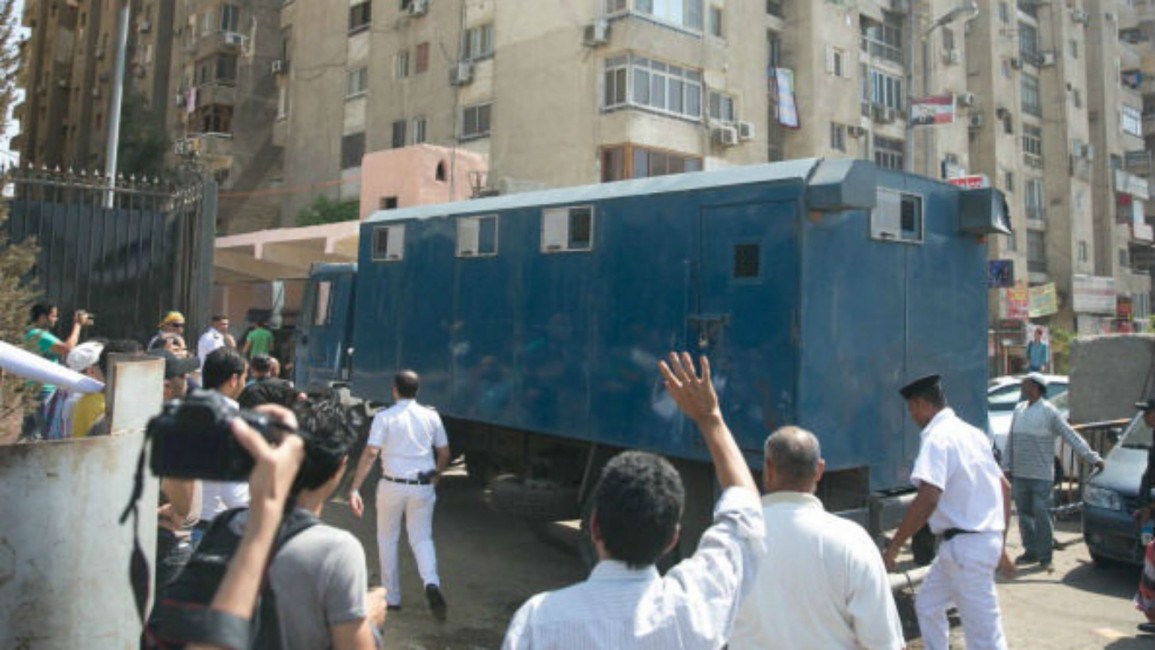'We are the living dead', Egypt's forgotten prisoners
In letter from an inmate of Egypt's most infamous jail, al-Aqrab prison written while the man was being transported to court, the prisoner described the degrading conditions endured by prisoners.
"We are the living dead, except while people die once we die over and over again everyday" the unnamed prisoner wrote, shedding further light on the notorious conditions inside Egyptian jails.
With conditions worsening as the winter season approaches, the prisoners resorted to severe measures on Friday to draw attention to their plight.
"We started a hunger strike in protest of the worsening conditions" the letter said, "we have no winter clothes, no slippers and no medication". He called upon human rights organisations to investigate their treatment, and to demand the Egyptian judiciary upholds their right to a fair trial.
The reaction of the prison’s authorities to the prisoners' hunger strikes as told in the letter tell of a regime of every-day brutality.
"They used full force against us, they broke into our cells, took out all the prisoners on the hunger strike and starting beating us", the prisoner said.
Allegations of barbaric conditions inside Egypt's prisons have long been rife.
In July 2015, Al-Araby Al-Jadeed reported on allegations of torture cases inside Egypt’s prisons.
Earlier this year, Human Rights Watch reported that Egyptians prisoners die in government custody as result of torture and physical abuse.
"Egypt’s prisons and police stations are bursting at the seams with opposition supporters rounded up by the authorities," said Sarah Leah Whitson, Middle East and North Africa director.
"People are being held in grossly overcrowded and
| The Aqrab prison has gained particular notoriety as a location of torture and physical abuse. |
inhumane conditions, and the mounting death toll is the wholly predictable consequence."
The Aqrab prison has gained particular notoriety as a location of torture and physical abuse of inmates, as well as for its diseased conditions.
Prisoners have publically complained of their suffering from ailments afflicted as a result of their incarceration, with some allegedly dying due to medical negligence in a prison that has gained the notorious label of 'the Aqrab Cemetry'.
Addressing readers unwilling to believe the sheer grimness of the conditions, the unnamed prisoner says there is no exaggeration in his account, and tells readers to seek the testimony of people who had seen the prisoners as they appeared in court.
"Ask them about our weak bodies, our sunken eyes, our rotting clothes, about our bodies and our naked feet" he wrote.
There has been a noted reversal of the gains in human rights realised in Egypt that followed the uprisings against the Mubarak regime in 2011, with the Sisi regime coming in for particular criticism for its banning of protests, mass arrest of political opponents and journalists, the expansion of military courts and the lack of accountability of its security forces, according to Human Rights Watch.



